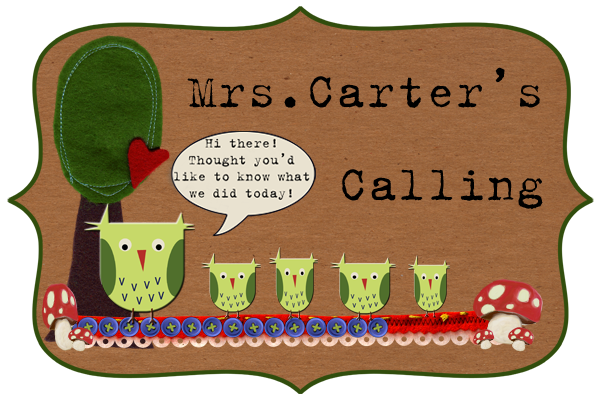I love all of the hands on activities and how in depth the curriculum goes into addition. The format is set up in a way that the children practice over and over again each "skill".
As a whole group we explore the skill with manipulatives and think about the "why" of the skill. The children then participate in a hands on manipulation of objects to make the skill more concrete for their developing minds. After I have introduced the skill, we work together on a few problems. Then, the responsibility is released to them. I have the children work in pairs. Most of the children have mastered the days skill and are then available to "teach" each other. By teaching others, they are solidifying the skill in their own minds. The ones who were on the fence about the skill usually get it through this working time. They have time to practice it with a partner. I make my way around and help those who may be confused. We come back together and discuss what we learned, clear up any remaining confusion, and then complete a task on their own to show mastery. It is at this time I am able to stop at the one or two children who still did not get the skill and work one on one with them.
The material is well organized, developmentally appropriate, and introduced in a manner that makes it understandable. The one skill that gave children a bit of trouble was ways to make a number.
If you remember the homework last week, it was when they had to color the uni fix cubes red and blue.
10+0=10
9+1=10
8+2=10
7+3=10
Overall, I am looking forward to our math series which introduces the skills in order in a developmentally appropriate manner!
How is math homework going?
Do you find your child struggling?
The homework is a reinforcement of what was taught at school that day.
If you saw your child struggle as they completed the work, please make a note on the homework for me.
Thanks for all your help and support!





kids need to be taught the more interesting(to them) applicatios of math. instead we're told we will not use it again( often by teachers of other subjects or counselors), but math teaching techniques are passed on by those who managed to learn from a cookbook solutions based system. many moons ago a UC CS Major taught me more abouth math in 30 mins than I'd learned from my teachers. he told me math is taught wrong, and that it's visual if properly presented. nothing. in a later electronics theory class what he said made even more sense.
ReplyDeletemy posting above is just the opinion of a guy who teachers told "you can do this you're smart", a conclusion based on top of class scores on everything but math, but conventional math training year after year had still not made sense to me, until in my 20s my CS major pal showed me some light, but his class load due the demands of the MA program in CS program he was taking did not leave the time to give me the math education I needed and did not beg for more. I thought to try and co develop some better material, but my math insight never got past that one special half hour,and I could not translate what he taught me into usable training for myself or others.I found this page looking to see if his ideas had trickled out so I could pick up where we had left off.
Delete